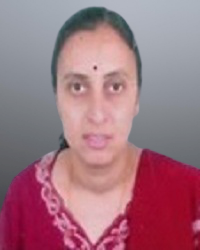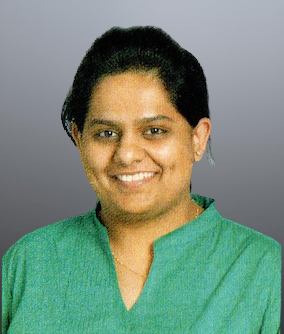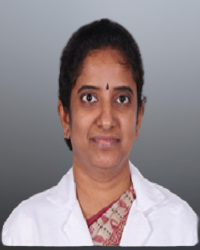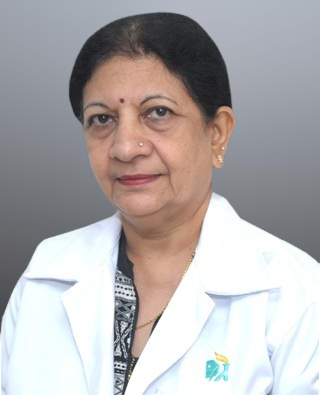Search Result: 16

Dr Betsy Antony
MBBS, DGO, DNB (OBG), FMAS
Registration No
6471812
Language
English, हिंदी, ಕನ್ನಡ, മലയാളം, தமிழ்

15 years experience overall

BANNERGHATTA ROAD , Bangalore
MON- SAT | MON- SAT(08:00 AM-10:00 AM | 03:00 PM-05:00 PM)

Dr Chitra Ramamurthy
MBBS, MD(OBS & GYN)
Registration No
848
Language
English, हिंदी, ಕನ್ನಡ, தமிழ், తెలుగు

37 years experience overall

BANNERGHATTA ROAD & J P Nagar , Bangalore
MON, TUE, THU- SAT | MON, TUE, THU, FRI(11:00 AM-01:30 PM | 08:00 AM-09:00 AM)

Dr D S Nagarathna
MBBS, MD, DGO
Registration No
677516
Language
English, ಕನ್ನಡ, తెలుగు

18 years experience overall

Koramangala , Bangalore
MON- SAT(09:30 AM-10:00 AM)

Dr Harshita Ramamurthy
MBBS, MS(OBG), FMAS(GYN), DRM
Registration No
795761
Language
English, हिंदी, ಕನ್ನಡ

10 years experience overall

BANNERGHATTA ROAD & J P Nagar , Bangalore
MON, WED- SAT, SUN | MON, THU, SAT | TUE(10:30 AM-01:00 PM | 04:00 PM-06:00 PM | 08:30 AM-10:00 AM)

Dr Jyoti Rajesh
MBBS DGO, (DNB)
Registration No
2639216
Language
English, हिंदी, ಕನ್ನಡ, मराठी, தமிழ்

22 years experience overall

Koramangala & Koramangala , Bangalore
MON- SAT(12:00 PM-01:30 PM)

Dr Kanthamma S
MBBS, MD (OBG)
Registration No
489522
Language
English, हिंदी, ಕನ್ನಡ

15 years experience overall

BANNERGHATTA ROAD , Bangalore
MON- SAT(09:30 AM-04:30 PM)

Dr Mohini N Prasad
MBBS, DORCP, MRCOG, FRCUG
Registration No
677842
Language
English, हिंदी, ಕನ್ನಡ, తెలుగు

36 years experience overall

Sheshadripuram , Bangalore
MON- SAT(01:30 PM-02:45 PM)

Dr Nikitha C P
FRM Fellow ship in Reproductive medicine (2022) FMAS fellow ship in minimal asceses surgery (2019) MS OBG 2018 MBBS 2015
Registration No
5799578
Language
English, اردو

5 years experience overall

BANNERGHATTA ROAD , Bangalore
MON- SAT(10:30 AM-01:00 PM)

Dr Preeti Shetty
MBBS,MD(OBG)
Registration No
850
Language
English

14 years experience overall

BANNERGHATTA ROAD , Bangalore
MON- SAT(01:30 PM-05:45 PM)

Dr Reetu G Naresh
DNB(OBG) MBBS
Registration No
4738468
Language
English, हिंदी, ಕನ್ನಡ, தமிழ், తెలుగు

20 years experience overall

Jayanagar , Bangalore
MON- SAT, MON- SAT(01:00 PM-03:00 PM)

Dr Sahana K P
MBBS, MS (OBG), FMAS, PGDMFM(Germany)
Registration No
5403438
Language
English, ಕನ್ನಡ

12 years experience overall

Sheshadripuram , Bangalore
MON- SAT(10:00 AM-01:00 PM)

Dr Savitha Shetty
• 2007-2008 MRCOG (Royal College of Obstetricians and Gynaec) • 1994-1997 MD (Obstetrics and Gynaecology) • 1994-1995 DGO (Obstetrics and Gynaecology) • 1986-1991 MBBS
Registration No
1835421
Language
English, ಕನ್ನಡ

24 years experience overall

Sheshadripuram , Bangalore
MON- SAT | MON- SAT(10:00 AM-02:15 PM | 04:00 PM-06:30 PM)

Dr Jyothi Rajesh
MBBS, DGO, (DNB)
Registration No
59917
Language
English

14 years experience overall

Koramangala , Bangalore
MON- SAT(11:00 AM-12:00 PM, 02:30 PM-04:00 PM)
Frequently Asked Questions for Hysteroscopic Polypectomy in Bangalore
The duration of Hysteroscopic polypectomy surgery can vary depending on the complexity of the case and the number of polyps being removed but the operation takes between 10 minutes to an hour.
Yes, Hysteroscopic polypectomy can improve fertility by removing uterine polyps that may interfere with implantation or conception. After the procedure, many women have been able to successfully conceive and carry a pregnancy to term.
No, hysteroscopy is not considered major surgery. It is a type of minimally-invasive surgery that may be done as an outpatient procedure. It involves inserting a thin instrument through the cervix into the uterus, avoiding the need for large incisions.
Side effects of polypectomy can include mild cramping, vaginal bleeding, or discharge for a few days after the procedure. These side effects are usually temporary and resolve on their own.
Although rare, risks of Hysteroscopic polypectomy can include infection, bleeding, perforation of the uterus, or complications from anesthesia. It is critical to talk about these risks with your physician before the operation.
Hysteroscopic polypectomy is usually performed under anesthesia, so you won’t feel any pain during the procedure. Afterward, you may experience mild cramping, but your doctor can prescribe medication to manage any discomfort.
The duration of Hysteroscopic polypectomy can vary depending on the size and number of polyps being removed. On average, the procedure takes about 10 minutes to an hour.
Eligibility for Hysteroscopic polypectomy is determined by your doctor based on factors such as the size and location of the polyps and your overall health. Your doctor will assess your specific situation to determine if this procedure is suitable for you.
Several hospitals specialize in Hysteroscopic procedures, including Apollo Hospitals. It’s recommended to choose a hospital that has experienced gynecologists, state-of-the-art equipment, and a good track record in performing hysteroscopy procedures.
After Hysteroscopic polypectomy, you may experience mild cramping and vaginal bleeding for a few days. If necessary, your doctor could give you pain medication. It’s important to avoid strenuous activities and sexual intercourse for a few weeks to allow the uterus to heal.
Preparation for Hysteroscopic polypectomy may include a pelvic examination, ultrasound, or blood tests. Your doctor may also ask you to stop taking certain medications or avoid eating or drinking for a few hours before the procedure.
The recovery time for Hysteroscopic polypectomy is usually short. As a result, most patients may return to normal activities inside a day or two. However, it’s important to follow your doctor’s post-procedure instructions for a smooth recovery.
The success rate of Hysteroscopic polypectomy is generally high, with most patients experiencing complete removal of the polyps. However, the success rate may vary depending on factors such as the size and location of the polyps.
To find the best doctors for Hysteroscopic polypectomy, you can ask for recommendations from your primary care physician, friends, or family members. You can also research online and read patient reviews to help you make an informed decision.
Hysteroscopic polypectomy is usually performed by gynaecologists or reproductive endocrinologists who have expertise in performing hysteroscopy and other minimally invasive procedures.
A qualified gynaecologist who has received specialized training in hysteroscopy and minimally invasive procedures is the ideal professional to perform Hysteroscopic polypectomy.
undefined
Related Procedures in Bangalore
- Doctors for Hysterectomy in Bangalore
- Doctors for Mastectomy in Bangalore
- Doctors for C-section in Bangalore
- Doctors for Medical abortion in Bangalore
- Doctors for Myomectomy in Bangalore
- Doctors for Adhesiolysis in Bangalore
- Doctors for Hysteroscopic Polypectomy in Bangalore
- Doctors for Diagnostic Laproscopy in Bangalore
- Doctors for Fibroid Removal in Bangalore
- Doctors for Laparoscopic Assisted Vaginal Hysterectomy in Bangalore
- Doctors for Removing Uterine Polyps in Bangalore
- Doctors for Total Laparoscopic Hysterectomy in Bangalore
- Doctors for Diagnostic Hysteroscopy in Bangalore
- Doctors for Ovarian Cyst Removal in Bangalore
- Doctors for Hysteroscopic Myomectomy in Bangalore
- Doctors for Tubal Ligation in Bangalore
- Doctors for Breast Surgery in Bangalore
Related Treatments in Bangalore
- Doctors for Ectopic Pregnancy Treatment in Bangalore
- Doctors for Endometriosis Treatment in Bangalore
- Doctors for Hirsutism Treatment in Bangalore
- Doctors for Lichen Planus Treatment in Bangalore
- Doctors for Menopause Treatment in Bangalore
- Doctors for Polycystic Ovary Syndrome Treatment in Bangalore
- Doctors for Sexually Transmitted Diseases Treatment in Bangalore
- Doctors for Urinary Incontinence Treatment in Bangalore
- Doctors for Uterine Fibroids Treatment in Bangalore
- Doctors for Uterine Prolapse Treatment in Bangalore
- Doctors for Vaginitis Treatment in Bangalore
Other Specialities in Bangalore
- Best Urologist in Bangalore
- Best Pulmonologist in Bangalore
- Best General Physician in Bangalore
- Best Endocrinologist in Bangalore
- Best Cardiologist in Bangalore
- Best Oncologist in Bangalore
- Best Radiologist in Bangalore
- Best Orthopedics in Bangalore
- Best Hepatologist in Bangalore
- Best Gynecologist in Bangalore
- Best Dermatologist in Bangalore
- Best Gastroenterologist in Bangalore
- Best Psychologist in Bangalore
- Best Ent Specialist in Bangalore
- Best Nephrologist in Bangalore
- Best Rheumatologist in Bangalore
- Best Diabetologist in Bangalore
- Best Psychiatrist in Bangalore
- Best Neonatologist in Bangalore
- Best Dentist in Bangalore
- Best Dietitian in Bangalore
- Best Haematologist in Bangalore
- Best Pediatrics in Bangalore
- Best General Surgeon in Bangalore
Top Hospitals in India
- Hospitals in Ahmedabad
- Hospitals in Bangalore
- Hospitals in Bhubaneswar
- Hospitals in Bilaspur
- Hospitals in Chennai
- Hospitals in Delhi
- Hospitals in Guwahati
- Hospitals in Hyderabad
- Hospitals in Indore
- Hospitals in Kolkata
- Hospitals in Madurai
- Hospitals in Mumbai
- Hospitals in Mysore
- Hospitals in Nashik
- Hospitals in Noida
- Hospitals in Visakhapatnam
- Hospitals in Lucknow
- Hospitals in Bhopal
- Hospitals in Karur
- Hospitals in Kochi
- Hospitals in Nellore
- Hospitals in Trichy
- Hospitals in Kakinada
© Copyright 2024. Apollo Hospitals Group. All Rights Reserved.




 Call Now
Call Now










